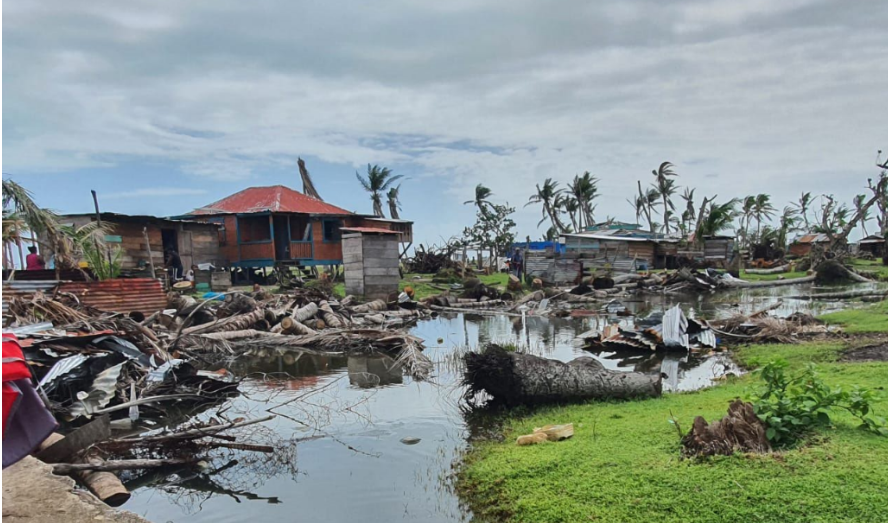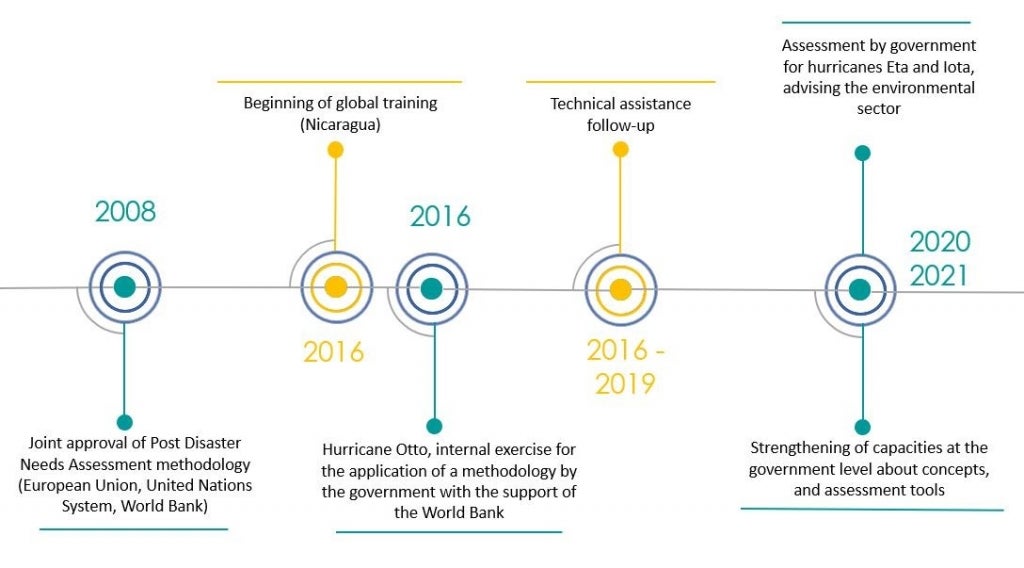 Wounta, Nicaragua
Wounta, Nicaragua
In a year already like none other, the 2020 hurricane season broke records with 30 named storms, surpassing the 2005 Atlantic hurricane season, which to date was the most active on record. The last two powerful tropical storms, Eta and Iota, also broke records.
For the first time in history, two hurricanes of category 4 or above made landfall in Nicaragua and Honduras within two weeks. These events caused further devastation in those countries already struggling to respond to the COVID-19 (coronavirus) crisis. That’s why mainstreaming disaster risk management (DRM) into development planning is essential to reversing the current trend of rising disaster impact.
The case of Nicaragua
In November 2020, when Eta and Iota hit, in Nicaragua alone over three million people suffered their devastating effects. In its post-disaster response however, Nicaragua showed that it has gradually transitioned from a reactive disaster-focused approach to one with a more proactive DRM approach. Disaster risk management has now become an important tool for sustainable development, informing decisions under uncertain emergency situations.
There are five areas worth highlighting in Nicaragua’s most recent response:
- Capacity for damage and loss assessment: After Eta and Iota, the country assessed damages and losses within three weeks of the hurricanes, informing the timely mobilization of funds and early action towards a recovery plan . Since 2016, and with the technical support of the World Bank, the Ministry of Finance has worked with line ministries to build in-house capacity to conduct damage and loss assessments. The Ministry uses methodologies developed for the international community to conduct joint post disasters damage and loss assessments, such as the Post Disaster Needs Assessments (PDNA) and the Damage and Loss Assessment (DaLA).
Timeline: Nicaraguan loss and damage assessment process

- Access to innovative financing instruments: Adequate planning helps governments mount strategic responses based on a forward-looking approach that allows more successful rebuilding and offsets some disaster-related costs . In 2020, the Ministry of Finance took measures to prepare for the forecasted above-average hurricane season by increasing, based on the technical recommendations by the Nicaraguan Institute for Territorial Studies (INETER), its tropical cyclone insurance coverage from the Caribbean Catastrophe Risk Insurance Facility Segregated Portfolio Company (CCRIF SPC). As a result, after Hurricanes Eta and Iota, the country received $30.6 million in payouts under the excess rainfall and tropical cyclone policies. This payout provided short-term liquidity in the aftermath of a disaster, enabling the government to respond to the emergency until it secured other funding. Since 2015, the World Bank has been supporting the expansion of CCRIF SPC to Central America and contributing through technical assistance to the development of Nicaragua’s disaster risk financing strategy and operating plan.
- Social inclusion and participatory processes for resilient recovery: In January 2021, the World Bank approved an $80 million credit to finance the Nicaragua Hurricanes Eta and Iota Emergency Response Project . The project supports the country’s restoration of services and economic activities in critical sectors after Hurricanes Eta and Iota. The focus is on targeting the different needs of a diverse population, including Afro-descendant populations, indigenous people and women, and facilitating the full and effective participation of stakeholders to ensure that recovery activities benefit the most vulnerable communities. The project also includes mechanisms to promote equal access by and feedback from diverse groups and improve data collection and awareness of gender-specific needs.
- Monitoring of post-disaster expenditures: Nicaragua has broadened the scope of its financial toolkit and has begun implementing a DRM and climate change budget classifier in 14 entities and critical sectors. This has been implemented with technical support from the World Bank, to help the country trace resources allocated to DRM. Monitoring and accountability provide valuable information for future budget allocations and efficient use of public funding.
- Reliable early warning systems and participatory structures: Nicaragua started evacuation procedures three days before the storms hit the country, reporting six times less fatalities than hurricane Felix in 2007 . The country’s response reflected their greater awareness of the exposure and vulnerability of certain urban areas to natural adverse events, and their ability to effectively use early warning systems and evacuation procedures to save lives. As part of a comprehensive approach to disaster risk reduction, Nicaragua has taken essential steps to incorporate DRM and climate change adaptation into its urban and sectoral development policies.
In other words, preparedness pays off. This is essential in countries where the poor and vulnerable suffer disproportionately from the impacts of disasters. When countries prepare, they set themselves on the path to rebuild stronger, faster and more inclusively after a disaster, minimizing the damage caused to people’s livelihoods and well-being.





Join the Conversation